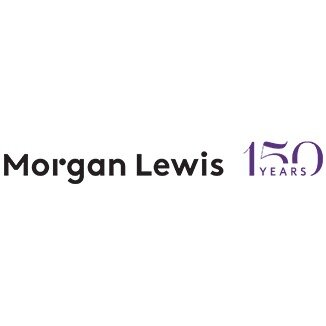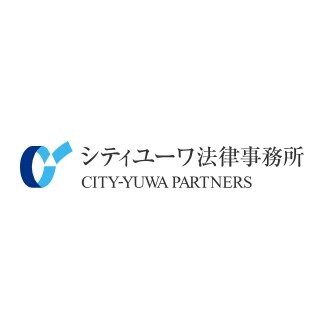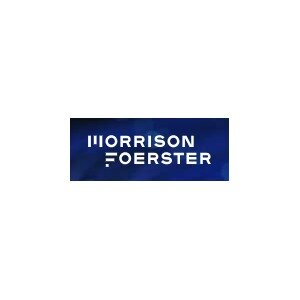Best Conveyancing Lawyers in Chiyoda-ku
Share your needs with us, get contacted by law firms.
Free. Takes 2 min.
Free Guide to Hiring a Real Estate Lawyer
List of the best lawyers in Chiyoda-ku, Japan
About Conveyancing Law in Chiyoda-ku, Japan
Conveyancing refers to the legal process of transferring property ownership from one person to another. In Chiyoda-ku, a vibrant business and administrative district in Tokyo, property transactions follow strict legal guidelines based on national laws as well as local practices. Conveyancing ensures that transfers of land, apartments, or offices are valid, secure, and recorded properly. The process typically involves reviewing contracts, conducting property searches, checking for legal encumbrances, preparing official documents, and registering transfers with government authorities.
Why You May Need a Lawyer
Engaging a lawyer is highly recommended when dealing with property transactions in Chiyoda-ku. Common scenarios that require legal assistance include:
- Buying or selling an apartment, house, or commercial property
- Transferring the title of inherited property
- Resolving disputes over property boundaries or ownership
- Dealing with mortgaged property transactions
- Assisting non-residents or foreigners in acquiring property
- Ensuring legal compliance during complex transactions involving corporate entities
- Preparing or reviewing the terms and conditions of real estate contracts
- Negotiating terms with real estate agents and other parties
Legal professionals help safeguard your interests, ensure all documentation is correct, and minimize the risk of costly mistakes or future disputes.
Local Laws Overview
Conveyancing in Chiyoda-ku is governed by the Japanese Civil Code, the Real Estate Transaction Business Act, and several related regulations. Notable elements of local law include:
- Mandatory real estate disclosure requirements for sellers
- Due diligence for boundary surveys and property registration records
- Use of standardized contracts for most residential transactions
- Strict obligations for notaries and legal professionals in authenticating and registering property transfers
- Payment of stamp duties, registration taxes, and, in some cases, consumption tax on property sales
- Protections for buyers, such as the right to cancel contracts if material facts are concealed
- Rules for foreign nationals and entities regarding property transactions, including submission of notifications to authorities in certain cases
It is important to consider the unique aspects of Chiyoda-ku, such as zoning regulations, land use restrictions, and historical property listings, when undertaking conveyancing here.
Frequently Asked Questions
What is conveyancing and why is it important?
Conveyancing is the legal process of transferring property ownership. It ensures the transfer is valid, protects both parties, and avoids future disputes over the property.
Do I need a lawyer for conveyancing in Chiyoda-ku?
While not strictly required by law, involving a lawyer is highly recommended. Lawyers help interpret complex documents, protect your rights, and ensure all legal requirements are met.
How long does property conveyancing take in Chiyoda-ku?
The process usually takes four to eight weeks, depending on factors such as title searches, mortgage approvals, and registration processing times.
What are the main costs involved?
Typical costs include legal fees, stamp duties, registration fees, agent commissions, and taxes related to the property transfer.
Can foreigners buy property in Chiyoda-ku?
Yes, Japan allows foreign individuals and companies to purchase property without major restrictions, but compliance procedures must be followed.
What is a judicial scrivener (shiho-shoshi) and how are they involved?
A judicial scrivener is a legal expert who handles registration of property transfers and prepares necessary documentation, often working alongside lawyers and real estate agents.
What happens if there is a legal dispute during the transaction?
If a dispute arises, a lawyer can assist in negotiations, mediation, or, if necessary, court proceedings to resolve the issue.
How are property boundaries confirmed?
Property boundaries are confirmed through official surveys and a review of registry maps, verified by a legal professional or authorized surveyor.
Are there special considerations for buying older or historic properties?
Yes. Older or historically-listed properties may involve additional restrictions, conservation requirements, or approval from local authorities before transfer or renovation.
What documents are needed for conveyancing?
Essential documents include the purchase contract, property registry extract, identification documents, tax statements, and, in some cases, mortgage documentation and official surveys.
Additional Resources
People seeking more information or assistance can contact the following:
- Tokyo Legal Affairs Bureau (Chiyoda Branch) for property registration information
- Japan Federation of Shiho-Shoshi Lawyer’s Associations for judicial scrivener referrals
- Chiyoda-ku Ward Office for local zoning and property tax information
- Japan Legal Support Center (Houterasu) for general legal guidance and referrals
- Real estate agents certified by the Ministry of Land, Infrastructure, Transport and Tourism (MLIT) for market and process advice
Next Steps
If you are considering buying, selling, or transferring property in Chiyoda-ku, start by gathering relevant documents, such as your identification, property records, and any past contracts. Consult a qualified lawyer or judicial scrivener with experience in local real estate law. They can provide a personalized assessment, explain your rights and obligations, and guide you through each step of the process. If needed, reach out to local or national legal support organizations listed above for initial advice or referrals. Acting promptly and with professional guidance will help ensure your transaction is smooth and legally compliant.
Lawzana helps you find the best lawyers and law firms in Chiyoda-ku through a curated and pre-screened list of qualified legal professionals. Our platform offers rankings and detailed profiles of attorneys and law firms, allowing you to compare based on practice areas, including Conveyancing, experience, and client feedback.
Each profile includes a description of the firm's areas of practice, client reviews, team members and partners, year of establishment, spoken languages, office locations, contact information, social media presence, and any published articles or resources. Most firms on our platform speak English and are experienced in both local and international legal matters.
Get a quote from top-rated law firms in Chiyoda-ku, Japan — quickly, securely, and without unnecessary hassle.
Disclaimer:
The information provided on this page is for general informational purposes only and does not constitute legal advice. While we strive to ensure the accuracy and relevance of the content, legal information may change over time, and interpretations of the law can vary. You should always consult with a qualified legal professional for advice specific to your situation.
We disclaim all liability for actions taken or not taken based on the content of this page. If you believe any information is incorrect or outdated, please contact us, and we will review and update it where appropriate.












